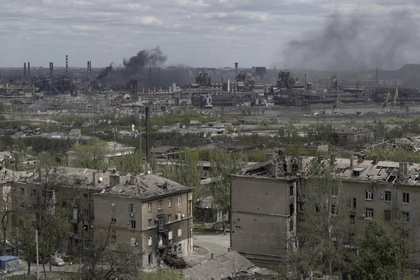The International Monetary Fund downgraded projections for Ukraine, reflecting a protracted war and strikes on energy infrastructure, but the Ukrainian policymakers are “doing a marvelous job” in such circumstances, Director of the European Department of the International Monetary Fund Alfred Kammer said during a press briefing presenting October 2024 Regional Economic Outlook for Europe.
“Growth numbers this year have been brutally affected by the bombing of the energy infrastructure in Ukraine and that dampens growth, also the outlook,” Kammer stated.
JOIN US ON TELEGRAM
Follow our coverage of the war on the @Kyivpost_official.
Russian strikes on energy infrastructure also create uncertainty inside the country, affecting the demand.
The war also turned out to be longer than the IMF expected, causing additional costs for the Ukrainian economy. “Russia’s war in Ukraine is going to continue. We had assumed it would stop earlier. It [hasn’t],” Kammer said, replying to a question from Ukrinform’s reporter Yaroslav Dovgopol.
On the other hand, Ukraine’s government is doing the best to maintain macro stability and support the economy, receiving praise from the IMF.
“The economic team has been doing and is still doing a marvelous job in terms on maintaining macroeconomic stability, supporting the economy to get growth going and supporting enterprises to operate in this environment, protect vulnerable people, suffering from the war; preparing the fundamentals from hopeful reconstruction that will come soon, the EU accession,” Kammer concluded.

Russiaʼs War Caused $170B in Infrastructure Damage to Ukraine
Kammer also explained how Russia’s invasion of Ukraine destabilized Europe’s economy, noting the energy price shock Russia caused in Europe when invading its neighboring country.
The invasion also caused a more severe tightening of monetary policy. “If you look at the tightening side, that had to be harsher simply because the inflation was higher. That is a result of the Russian war in Ukraine,” Kammer said.
The war also created uncertainty for consumers who are worried about energy prices. Investors became concerned about the medium-term prospects, as a result of the atmosphere created by Russia’s aggression.
“And these headwings will stay with Europe for the time being,” Kammer said.
You can also highlight the text and press Ctrl + Enter











